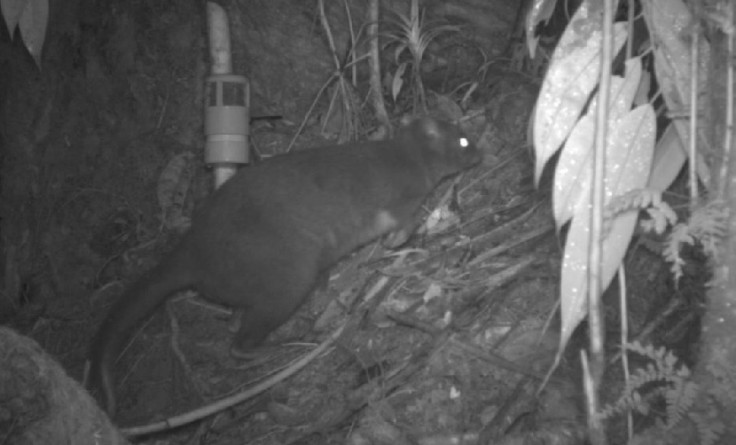Cat-Sized 'Docopsulus Wallaby' Discovered in First-Ever Crowdfunded Science Expedition

Australian scientists have discovered a number of previously unknown mammal species in Papua New Guinea, including a miniature wallaby.
The study, led by researchers at the Deakin University in Melbourne with the Tenkile Conservation Alliance (TCA), is the first crowd-funded scientific expedition.
Among the three newly-discovered animals captured on camera was the docopsulus wallaby, a small marsupial.
Euan Ritchie, an ecologist at the university, raised $20,000 (£11,000) to document rare animals using 40 camera traps in the Torricelli mountain rage in the remote north-west of the country.
The mountain range is home to some of the most endangered mammals in the world, as well as unknown species.

"We certainly got an image of what we think is a new species of sort of small kangaroo, dorcopsulus wallaby. Think small dog-size wallaby if you like," Mr Ritchie told ABC News.
"There's also things like bandicoots and rodents that don't appear to be in any of the books that we know about."
The other two discoveries include a so-called "Dumbo" mouse with large ears and an antechinus, a mouse-like animal with hedgehog-like bristles.
However, Ritche confirmed to the Independent that the animals have not yet been formally classified.
The researchers will return to the area to catch the animals and take DNA samples.
"There's a whole range, probably hundreds and hundreds of species, not just in mammals but the birds, the insects, all sorts of species that are probably unknown to western science," he said.
"We've really got to preserve those habitats because they're really valuable."
The camera traps revealed a number of other rare animals, as reported by the Guardian, including the rare Tenkile tree kangaroo and the Weimang tree kangaroo, of which there are believed to be 600 in total.
The dwarf cassowary and the hooded pitohui, the only poisonous bird in the world, were also photographed.
"If you eat it or touch it you will react to the toxins in the skin of this bird but it's not life threatening," said Jim Thomas from the TCA.
The TCA aims to save the critically endangered Tenkile Tree Kangaroo, or Scott's Tree Kangaroo (Dendrolagus scottae) and Weimang (Dendrolagus pulcherrimus) from becoming extinct.
"We will continue to survey the many unsurveyed mountain tops in the region, as well as repeat surveys of some through time to examine potential impacts of climate change," Ritchie said.
© Copyright IBTimes 2025. All rights reserved.






















